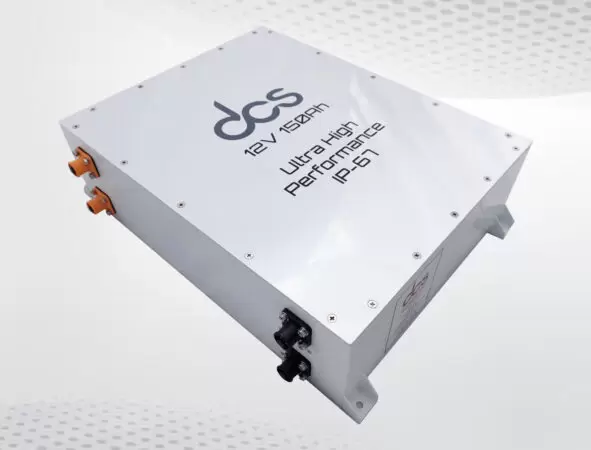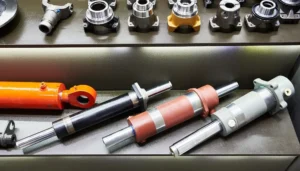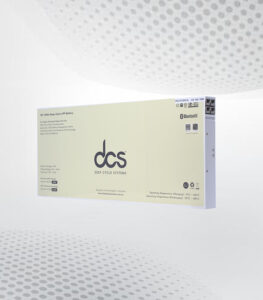Are you ready to power up your adventures and maximize your energy efficiency? Whether you’re an outdoor enthusiast, a DIY solar energy aficionado, or simply looking for reliable backup power solutions, deep-cycle batteries are the unsung heroes of modern energy storage. In this ultimate guide, we’ll dive into the world of 12V 150Ah deep cycle battery—exploring everything from their construction and benefits to essential tips on choosing the right one for your needs. Get ready to unlock the secrets behind these powerhouse components that can keep your gadgets running smoothly during camping trips, RV travels, or unexpected outages at home. Buckle up; it’s time to energize your knowledge!
Introduction to 12V 150Ah Deep-Cycle Batteries
Are you exploring the world of power solutions for your RV, boat, or off-grid solar system? If so, you’re likely to encounter the 12V 150Ah deep-cycle battery powerhouse. These batteries are not just another piece of equipment; they’re vital to many outdoor adventures and energy independence initiatives. With their ability to provide sustained energy over extended periods, they ensure that your devices remain powered when it counts most.
But what makes these batteries tick? Understanding their features and benefits can help you make informed decisions for your needs. Dive into this ultimate guide as we unravel everything there is to know about 12V 150Ah deep-cycle batteries—from how they work and key terminology to maintenance tips and debunked myths. Whether you’re a seasoned user or new to this technology, you’ll find valuable insights that could change how you approach your power requirements. Let’s get started!
What is a Deep-Cycle Battery and How Does it Work?
A deep-cycle battery is designed to provide sustained power over extended periods. Unlike regular batteries, which deliver quick bursts of energy, deep-cycle models excel at discharging and recharging repeatedly.
These batteries contain thicker plates and a special paste that enables them to handle prolonged use without significant damage. This unique construction allows for deeper discharge cycles—usually down to 20% capacity or lower—making them ideal for solar energy storage and marine use applications.
The operation relies on chemical reactions between lead and sulfuric acid within the cells. When you draw power, these reactions happen more slowly than in conventional batteries, ensuring a steady output. Recharging reverses the process, restoring energy over several hours. Understanding this mechanism can help you appreciate why choosing the right type of battery matters so much for your specific needs.
Benefits of Using a Deep Cycle Battery 12v 150ah
Deep-cycle batteries have become essential components in various applications, ranging from recreational vehicles to solar power systems. Among the different types of deep-cycle batteries available in the market, a deep cycle battery 12v 150ah stands out for its numerous benefits.
This section will explore the advantages of using a deep cycle battery with a 12v and 150ah capacity.
1. Longer Lifespan
One of the primary benefits of a deep-cycle battery is its longer lifespan compared to traditional starter batteries. This is because they are designed to be discharged and recharged repeatedly without causing any damage or affecting their performance. With proper maintenance, a 12v 150ah deep-cycle battery can last up to five years or more, making it a cost-effective investment in the long run.
2. Excellent Charging Efficiency
Unlike other types of batteries that require frequent charging, deep-cycle batteries have excellent charging efficiency. They can quickly absorb large amounts of electricity during charging without overheating or losing their capacity over time, making them ideal for use in off-grid applications where access to electricity is limited.
3. Versatility
The 12v and 150ah capacity make these batteries versatile and suitable for various applications such as marine, RVs, golf carts, electric vehicles, and renewable energy systems like solar panels. Their ability to provide consistent power over extended periods makes them ideal for powering appliances on boats and recreational vehicles when no external source of electricity is available.
4. Particularly Suited for Deep Discharges
Deep discharge refers to draining the battery’s charge completely before fully recharging it. Unlike starter batteries, which are not designed for this type of usage, deep cycle batteries thrive on regular full discharges and recharges without significant impact on their lifespan or performance.
5. Eco-Friendly Option
Most deep-cycle batteries use lead-acid technology, which makes them highly recyclable compared to other types of batteries. This makes them eco-friendly for those looking to reduce their carbon footprint and promote sustainable living.
A 12v 150ah deep cycle battery offers numerous benefits, making it an excellent choice for various applications. Its longer lifespan, excellent charging efficiency, versatility, ability to handle deep discharges, eco-friendliness, and cost-effectiveness make it a reliable power source for all your energy needs.
Factors to Consider When Choosing a 12 Volt 150 Amp Hour Deep Cycle Battery
The chemistry plays a crucial role when selecting a 12 volt 150 amp hour deep cycle battery. Lead-acid and lithium-ion are common types. Each has its pros and cons, impacting performance and lifespan. Next, consider size and weight. Ensure your chosen battery fits your space constraints while providing sufficient power. A larger battery may offer more capacity but can be cumbersome.
Price is another important factor. While going for the cheapest option is tempting, investing in quality often yields better long-term results. Maintenance requirements also vary significantly between models. Some batteries demand regular upkeep, while others are virtually maintenance-free—understanding these needs can save time and effort.
Lastly, consider how you intend to use your battery. Different applications might require specific features or specifications that align with your goals. Keeping all these factors in mind will help you make the right choice for your needs.
– Battery Chemistry
Understanding battery chemistry is crucial when choosing a 12V 150Ah deep-cycle battery. Different chemistries affect performance, longevity, and application suitability. Lead-acid batteries are the traditional choice. They’re reliable and cost-effective but can be heavy and require regular maintenance. These batteries come in two main types: flooded and sealed. Flooded ones need ventilation, while sealed variants offer convenience with less upkeep.
Lithium-ion batteries have surged in popularity due to their lightweight design and efficiency. They provide more power for longer periods but usually come at a higher price point. Then, there are gel and absorbed glass mat (AGM) options, which enhance safety by reducing spillage risks. Each type has its advantages depending on your specific needs or usage scenarios. Understanding these variations will help you decide what you value most—cost, weight, lifespan or maintenance effort.
– Size and Weight
Size and weight are critical factors when selecting a 12V 150Ah deep-cycle battery. The dimensions of the battery can dictate where you install it, whether in an RV, boat, or solar setup. A compact design might fit snugly under a seat or within tight storage spaces.
Weight is equally important; these batteries can be hefty. Heavier batteries often indicate more robust construction and materials. However, they may also require additional handling considerations.
Consider its portability if you’re mobile or plan to relocate the battery frequently. Lighter models could make transportation easier but ensure reduced weight doesn’t compromise performance and durability. Always measure your available space before making a purchase. This simple step can save you time and frustration during installation later on.
– Price
Price is a significant factor when considering a 12V 150Ah deep-cycle battery. Depending on the brand and features, the cost will vary. High-quality batteries often carry a higher price tag. However, investing in durable options can save you money in the long run. Cheaper models may require more frequent replacements or maintenance.
It’s essential to balance cost with performance. Look for warranties that reflect manufacturer confidence in their product. This can be an indicator of longevity and reliability. Remember potential hidden costs, too, such as shipping fees or installation services, if you’re not going the DIY route. Researching multiple sources will help you compare prices effectively while ensuring quality isn’t sacrificed for affordability.
– Maintenance Requirements
Maintaining a 12V 150Ah deep-cycle battery is crucial for longevity and performance. Regular checks can prevent unexpected failures during usage. Start by inspecting the terminals. Ensure they are clean and free from corrosion. A simple wipe with a baking soda solution can work wonders.
Next, monitor the fluid levels if you have a flooded lead-acid model. Keeping them topped up with distilled water helps maintain capacity. Charge your battery regularly, especially after heavy use or prolonged storage periods. To prevent sulfation, avoid letting it sit in a discharged state for too long.
Temperature also plays an important role; extreme heat or cold can significantly affect performance. Keeping your battery in a stable environment ensures optimal function. Lastly, follow the manufacturer’s recommendations for maintenance schedules to get the best out of your investment. Proper care translates into reliability when you need it most.
Top Brands and Models of 12V 150Ah Deep-Cycle Batteries
Several brands stand out for their reliability and performance when it comes to 12V 150Ah deep-cycle batteries. Renowned names like Lifeline, Battle Born, and VMAXTANKS have carved a niche in this space.
Lifeline’s GPL-1500T is well-regarded for its robust construction and long life cycle. It’s perfect for marine applications or off-grid power needs. Battle Born batteries are known for their advanced lithium technology. Their BB10012 has excellent discharge rates and lightweight design, making it ideal for RVs or solar setups.
VMAXTANKS offers the VMAX SLATE, which has impressive durability and maintenance-free features. This option suits recreational users and those who depend on consistent energy output. Each brand offers unique advantages. Choosing the right model depends on your specific requirements and usage scenarios.
Tips for Proper Care and Maintenance of Your 12 Volt Deep Cycle Battery 150
Regular checks are essential to ensure your 12 volt deep cycle battery 150ah performs at its best. Start by inspecting the terminals for corrosion. If you notice any buildup, clean them gently with a mixture of baking soda and water. Keep an eye on electrolyte levels in flooded lead-acid batteries. Top up with distilled water as needed, but avoid overfilling to prevent spills.
Temperature matters, too. Store your battery in a cool place to extend its life. Extreme heat or cold can significantly affect performance. Charge it properly using a compatible charger designed for deep-cycle batteries. Avoid fully discharging it frequently; try to keep it above 50% when possible. Lastly, consider periodic load testing to evaluate overall health and ensure that it efficiently meets your energy demands during use. Regular maintenance is key to longevity and reliability.
Common Myths about Deep-Cycle Batteries Debunked
Deep-cycle batteries often have a host of misconceptions. One common myth is that they can only be discharged to 50% capacity. While most experts recommend this for optimal lifespan, many modern deep-cycle batteries handle deeper discharges without significant damage. Another popular belief is that all deep-cycle batteries are the same. In reality, variations in chemistry—like lead acid and lithium—affect performance and longevity differently.
Some people think these batteries require constant maintenance. However, sealed varieties need little to no upkeep compared to traditional flooded types. Lastly, there’s a notion that deep-cycle batteries are too heavy for practical use. While size matters, technological advancements have led to lighter options without sacrificing power or reliability.
Conclusion
When choosing a reliable power source, 12V 150Ah deep cycle battery is optimal for many applications. Their design allows them to be discharged and recharged multiple times without significant degradation, making them perfect for recreational vehicles, solar energy systems, and marine equipment. Understanding the intricacies of battery terminology can enhance your purchasing decisions. Knowing how voltage and amp hours affect overall capacity will help you select a battery that meets your needs. The benefits of these batteries are numerous—from their longevity to their ability to provide stable power over extended periods.
FAQs
1. What is a 12V 150Ah deep cycle battery?
A deep-cycle battery is designed to provide sustained power over an extended period of time rather than short bursts of energy like a starter battery. It is commonly used in applications such as RVs, boats, and solar systems.
2. What does the “12v” in the name mean?
The “12v” refers to the battery’s voltage. In this case, the battery has a nominal voltage of 12 volts.
3. What does “150ah” stand for?
The “150ah” stands for ampere-hours, a unit used to measure a battery’s capacity. It indicates how much charge the battery can deliver over time. In this case, a fully charged 12v 150ah deep cycle battery can deliver 150 amps of current for one hour or 75 amps for two hours.




